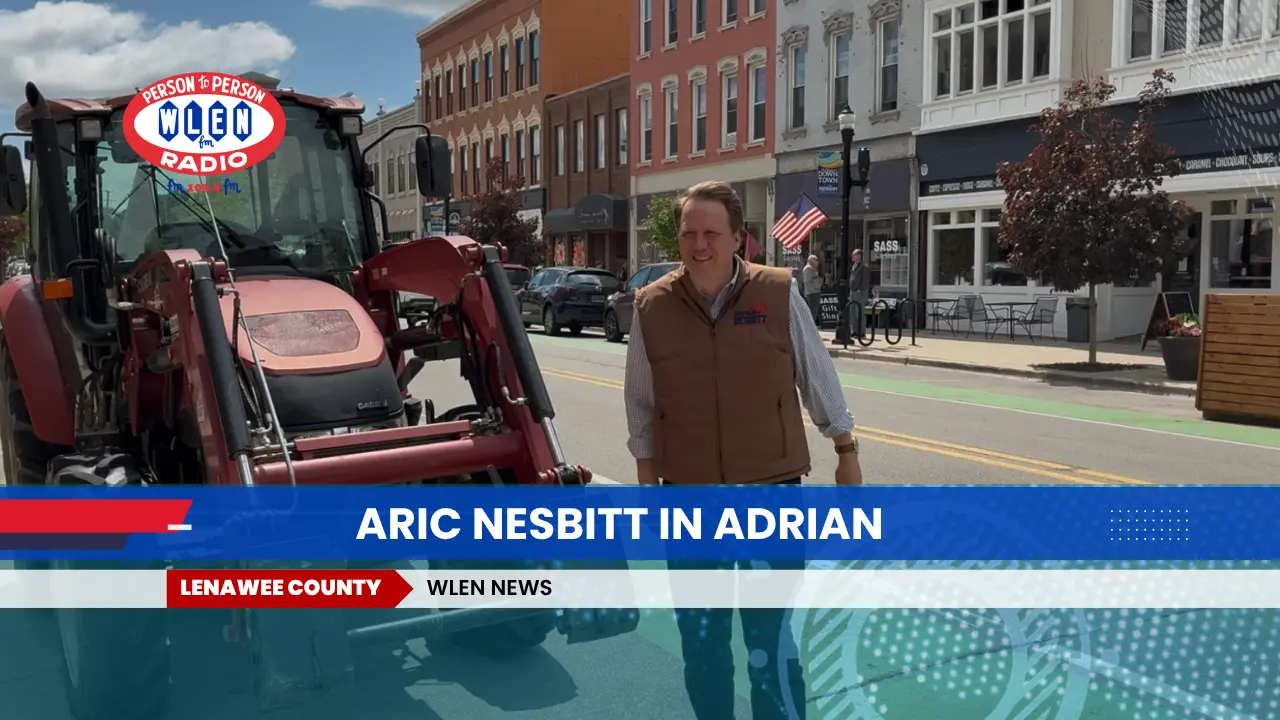
ADRIAN — State Senate Minority Leader Aric Nesbitt brought his “Tractor Tour” campaign to Adrian this week as part of his early run for governor. The tour, aimed at engaging rural voters across Michigan, emphasizes agriculture, economic development, and Nesbitt’s “Michigan First” message.
While in Adrian, Nesbitt spoke with constituents and addressed a range of policy questions, including renewable energy, public investment, and Michigan’s past film incentive program. The conversation explored how historical public infrastructure investment — such as President Franklin D. Roosevelt’s New Deal — shaped economic recovery and whether similar principles could apply to modern environmental and technological challenges.
Nesbitt expressed firm support for free-market approaches, stating, “I’m somebody who believes more in the free market than government intervention… it’s that profit motivation that convinces folks to innovate and grow.” When asked if public investment could still play a role, he emphasized the government’s responsibility in infrastructure, education, and streamlined permitting while remaining critical of mandates and subsidies.
On renewable energy, Nesbitt said he favors an “all-of-the-above” energy policy, including nuclear, coal, natural gas, and renewables, judged by reliability and affordability. He pointed to improvements in U.S. environmental performance over the past 45 years as evidence that innovation, rather than regulation, has driven cleaner outcomes.
“The American economy has grown by over 200%, population by 50%, miles driven by 100% — yet energy use has only risen 12%, and emissions have barely increased,” Nesbitt said. He credited this in part to advances in hydraulic fracturing and natural gas technologies.
The conversation also touched on the Environmental Protection Agency (EPA), where Nesbitt acknowledged its role in tracking pollutants but reiterated concerns about overregulation. When asked whether the EPA, originally rooted in the conservation efforts of President Theodore Roosevelt, played a role in environmental gains, Nesbitt maintained that innovation was the key driver of cleaner air and water.
The discussion concluded with a local economic question — whether Michigan missed an opportunity by eliminating its film tax incentives, a program that had attracted film production before it ended in 2015. Nesbitt stood by the decision to cut the program, citing its $800 million cost and a lack of long-term job creation: “We spent over $800 million on those Hollywood film subsidies, and there were fewer film jobs at the end of those subsidies.”
Nesbitt’s Tractor Tour continues across southern Michigan this summer. More information can be found on his campaign website.
